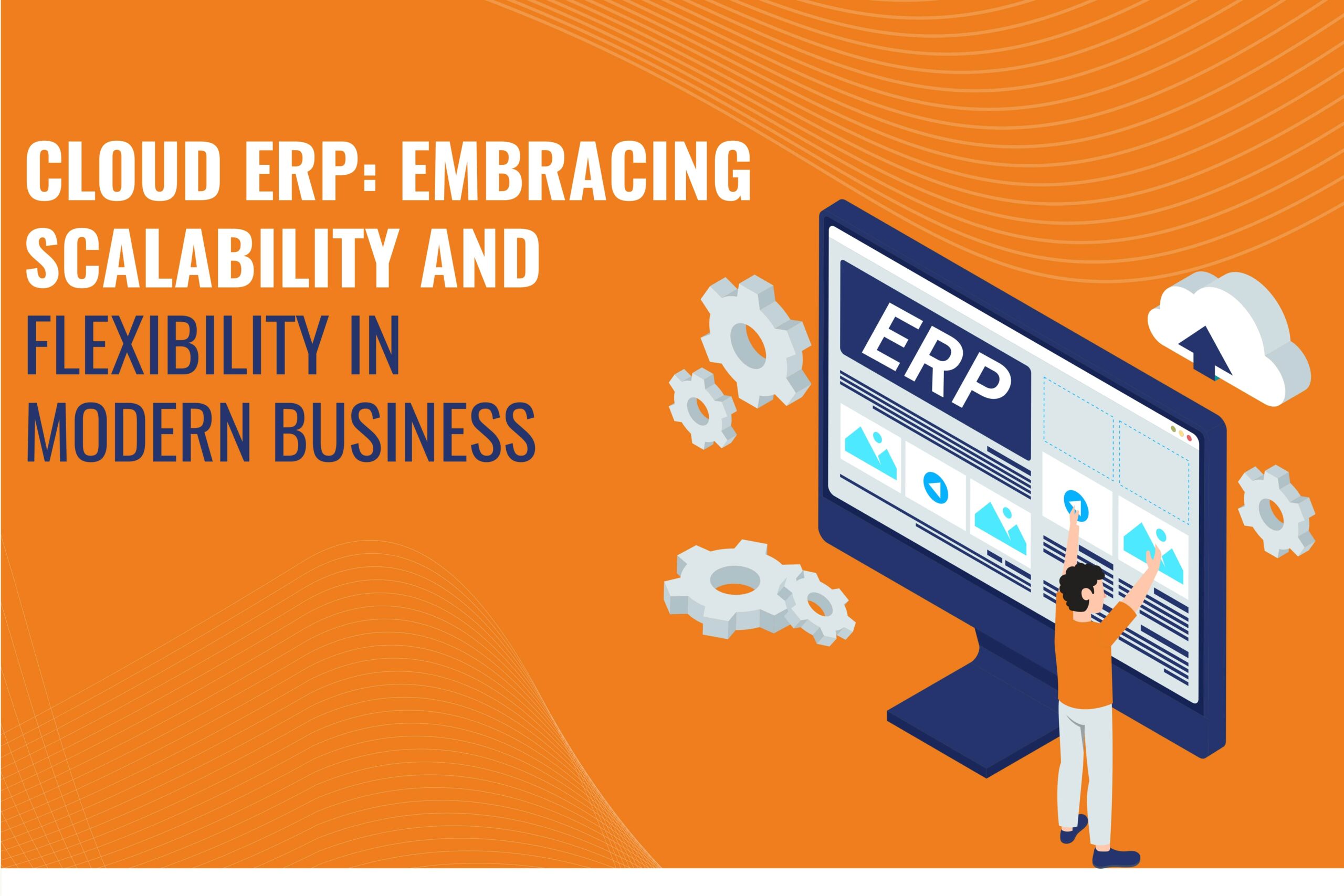
Embracing Scalability and Flexibility in Modern Business actively underscores that cloud computing possesses. The transformative power within the realm of Enterprise Resource Planning (ERP) systems. In an era where agility and adaptability take precedence, cloud ERP emerges as a game-changer, actively empowering organizations. To access and manage their ERP systems through cloud-based platforms, thus eliminating the need for on-premises hardware and infrastructure.
Cloud ERP systems inherently provide scalability, allowing organizations to adjust their computing resources and storage capacity as needed easily. This agility proves essential for businesses experiencing growth or fluctuations in demand, ensuring efficient operations without incurring costly hardware investments.
Flexibility is another central pillar of the cloud ERP paradigm. Organizations can actively tailor their ERP solutions to their specific requirements to the modular and customizable nature of cloud-based platforms. This adaptability empowers businesses to respond rapidly to shifting market dynamics and evolving customer needs.
Moreover, this discussion expresses the benefits of using cloud ERP in modern business. Traditional on-premises ERP systems often entail significant upfront investments in hardware, maintenance, and IT staff. In contrast, cloud ERP mitigates these expenses, offering a pay-as-you-go model that aligns operational costs with actual usage.
This discussion into the advanced security measures and data protection protocols inherent in cloud ERP platforms. It emphasizes that reputable cloud providers. It makes substantial investments in safeguarding their clients’ data, often surpassing the security measures feasible for on-premises solutions.
Furthermore, this discussion underscores the critical role of real-time data analytics. Cloud ERP systems actively facilitate the collection and analysis of real-time data, empowering organizations to make informed, data-driven decisions swiftly. This capability proves instrumental in gaining a competitive edge in today’s fast-paced business environment.
So, these aspects are the adoption of cloud ERP for its scalability, flexibility, cost-efficiency, security, accessibility, and real-time analytics capabilities. By embracing cloud ERP, businesses can proactively seize opportunities to adapt, thrive, and outpace the competition in the business landscape.
Organizations are actively looking for methods to improve their competitiveness and agility in the quickly changing business environment of today. ERP implementation is increasingly viewed as a critical step towards achieving operational excellence and staying ahead in the competitive landscape. Strategic efforts are actively driven by embracing scalability and flexibility in contemporary companies using Cloud Enterprise Resource Planning (ERP) platforms. Businesses are increasingly adopting cloud-based ERP software solutions to flourish in this climate.
Do you want to know the importance of implementing scalability and flexibility in modern business? If yes, in this blog, we will discuss process, benefits and importance of implementing scalability and flexibility in modern business. These systems, which are housed on distant servers and reachable over the Internet. This actively provides a number of benefits, including scalability, flexibility, and affordability.
Long-term Success in today’s quickly changing and fiercely competitive business environment depends on an organization’s capacity to adapt and develop. Accepting scalability and flexibility has evolved from being a benefit to being essential for contemporary enterprises. The importance of embracing scalability and flexibility in modern business is discussed below.
Cloud Enterprise Resource Planning (ERP) systems are a popular option for managing many parts of operations. It provides a variety of benefits to firms especially in their growth. The following are some of the main advantages of adopting cloud ERP:
By doing away with costly on-premises gear and infrastructure, cloud ERP lowers capital costs. Reduced maintenance expenses The service provider is in charge of keeping the system updated, which lowers internal IT expenditures.
Cloud ERP systems are scalable, enabling companies to add or remove resources and functions as necessary. Making it simpler to adjust to expansion or shifting customer needs.
Users may use cloud transformation systems from any location with an internet connection at any time. Facilitating remote work and accessibility for international teams.
Cloud ERP solutions frequently provide a great level of customization. It enables companies to configure the system to meet their unique requirements.
To guard against data breaches and loss, reputable cloud ERP providers. So, substantially invest in security methods like including encryption, frequent security upgrades, and data redundancy.
Proper ERP implementation systems help to update things automatically in the organization. Organizations always have access to the newest features such as bug fixes, and security patches.
Scalability and flexibility adaptations are essential in modern companies to maintain competitiveness and respond to shifting market conditions. To embrace these qualities effectively, use these procedures and strategies:
Start by assessing your present business processes and finding any areas that may use some flexibility and scalability. To evaluate the needed level of scalability, define your long-term business objectives and growth estimates.
Invest in cloud-based technology that has scalability and flexibility as key advantages, such as cloud ERP solutions. To readily extend, think about using software-as-a-service solutions for multiple company operations, such as including CRM, HR, and financial administration.
Scalability and flexibility adaptations are essential in modern companies to maintain competitiveness and respond to shifting market conditions.
For example companies can focus on the appropriate data management aspects for their growth. Centralizing data storage in a Cloud ERP establishes a single source of truth for the entire organization, ensuring that all departments can access up-to-date and accurate information, thereby reducing the risk of data inconsistencies. This active approach helps businesses maintain the confidentiality, integrity, and availability of their data, meeting regulatory compliance requirements effectively.
Therefore, Success requires scalability and flexibility in the fast-paced corporate climate of today. Cloud transformation systems give businesses the flexibility they need to respond to shifting customer needs, capture opportunities, and face obstacles. Cloud ERP solutions free organizations from the limitations of conventional on-premises ERP systems. It allows them to grow internationally, manage resources effectively, and maintain flexibility in the face of unpredictability. For more information, visit our website.

In today’s competitive business environment, organizations must be equipped with efficient, reliable, and scalable systems to manage their operations. Enterprise Resource Planning (ERP) solutions provide companies with the tools to streamline their processes, integrate various departments, and enable data-driven decision-making.
Among the vast array of ERP solutions, SAP is one of the most well-known, but it’s not the only option. Businesses must consider whether SAP or another ERP solution is the right fit based on their unique needs.
Read More
Enterprise Resource Planning (ERP) systems have become the backbone of modern business operations. Whether it’s handling financials, human resources, supply chains, or manufacturing processes, ERP solutions streamline and automate vital business functions, fostering efficiency and growth. SAP, one of the leading ERP platforms, is often the go-to choice for organizations due to its robust and customizable features. However, ERP implementation—whether SAP or another system—is not without challenges. This is where IT consulting services play a pivotal role.
The complexities of ERP implementations require specialized expertise, and IT consulting services provide the technical know-how, strategic planning, and ongoing support that are critical to successful deployment and long-term functionality.
Read More
In the rapidly evolving business landscape, enterprise resource planning (ERP) systems are essential for companies looking to streamline operations, improve data accuracy, and enhance decision-making processes. As we look toward 2025, the future of ERP implementation is promising, with significant trends emerging that are reshaping how organizations deploy and manage their ERP systems. From advancements in SAP implementation to innovations in IT consulting services, businesses must keep a keen eye on these trends to remain competitive.
Read More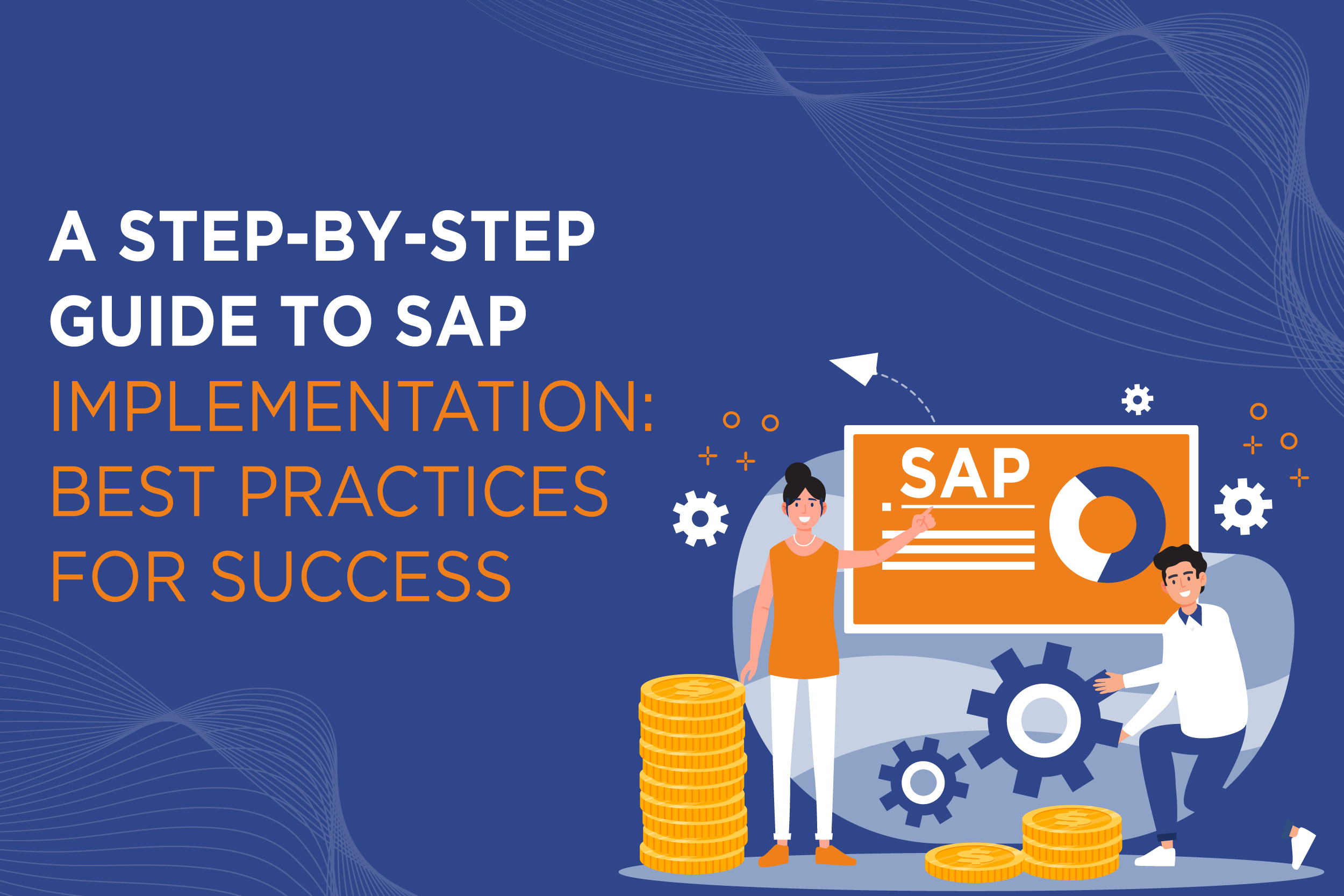
Implementing an SAP and ERP system is a major milestone for many organizations seeking to streamline operations, enhance efficiency, and support future growth.
However, SAP implementation is a complex and resource-intensive process that requires meticulous planning and execution. Done right, it can transform your business. Done wrong, it can lead to significant disruptions.
Read More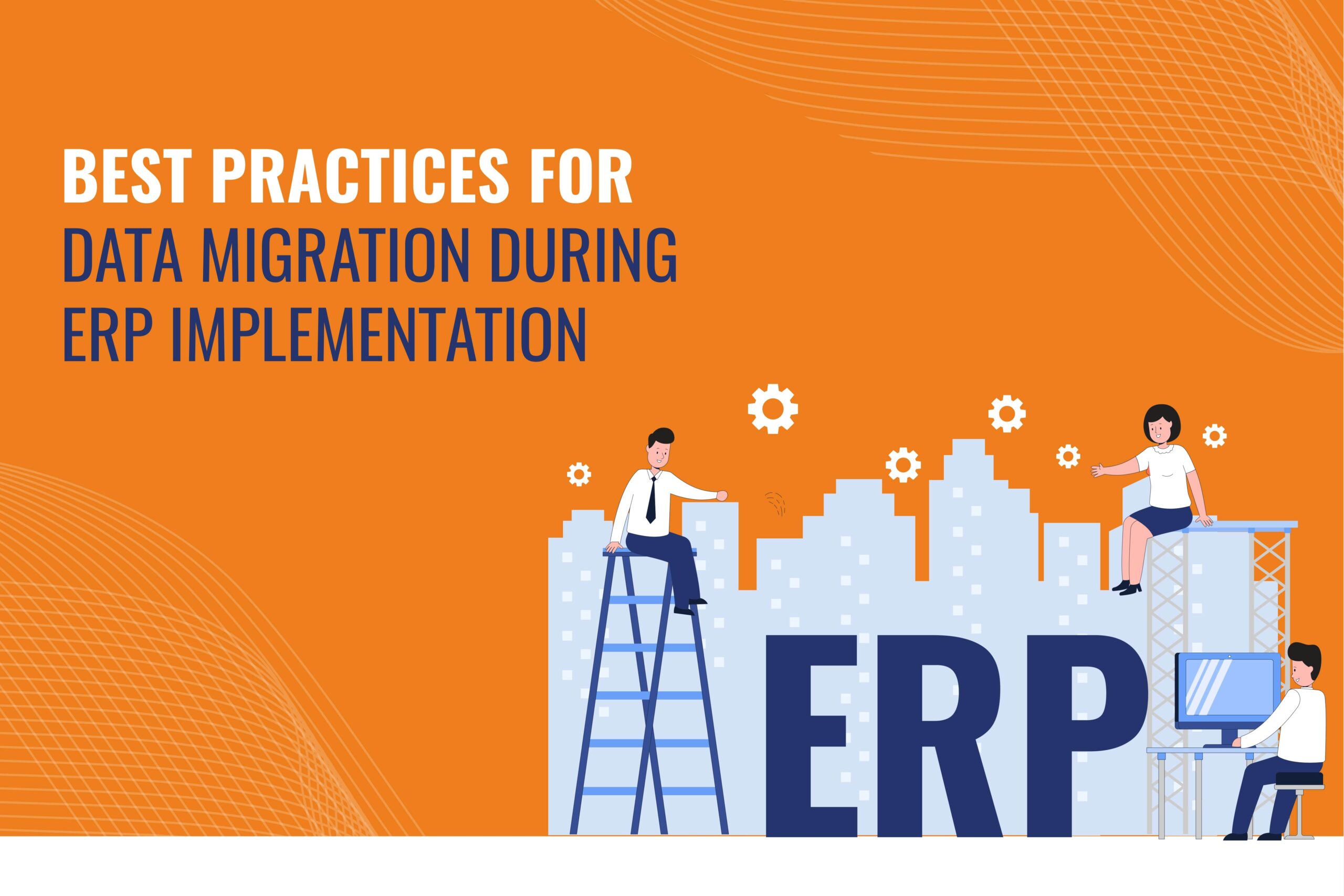
Implementing an ERP system is a transformative step for organizations, offering streamlined processes and strategic insights. However, the success of an ERP implementation largely depends on effective data migration, which involves transferring data from legacy systems to the new platform. This process is complex and requires meticulous planning to avoid disruptions to business operations.
Data migration involves activities like data extraction, transformation, cleansing, and loading (ETL). The goal is to ensure data from various sources is accurately transferred and integrated into the ERP system, maintaining data integrity and accessibility.
Organizations face several challenges during data migration. These include ensuring data quality, managing compatibility issues between different systems, handling the volume and complexity of data, minimizing downtime, and ensuring compliance with security regulations. Addressing these challenges is crucial for a successful ERP implementation.
To overcome these challenges, organizations should follow best practices. These include establishing clear objectives and scope for the migration, conducting comprehensive data assessments, and developing a robust migration strategy. Investing in data cleansing and transformation, engaging stakeholders, and performing rigorous testing and validation are also key. Additionally, implementing data governance and security measures, and planning for contingencies, are essential to mitigate risks.
Following these best practices ensures smooth data migration, enabling organizations to fully leverage their ERP systems’ potential. This paves the way for enhanced efficiency, agility, and competitiveness in the digital landscape, laying a solid foundation for future growth and digital transformation.
Read More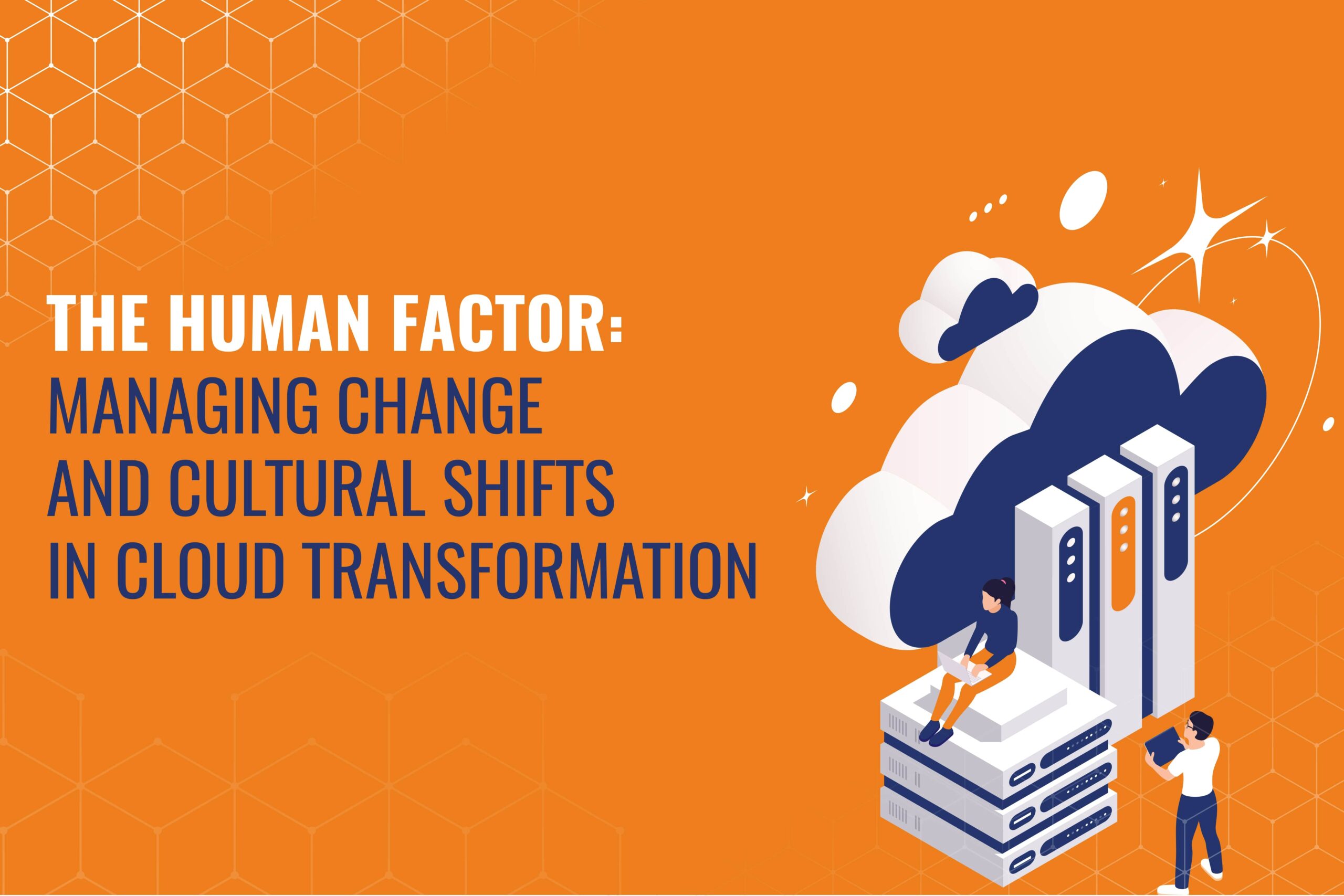
In the landscape of technological evolution, cloud transformation stands as a cornerstone for modern businesses seeking enhanced scalability, agility, and innovation. However, a critical yet often overlooked aspect lies beneath the surface of technical intricacies: the human factor. Managing change and cultural shifts is paramount for successfully adopting cloud technology.
At its core, cloud transformation extends beyond mere technological migration. So, it represents a fundamental shift in organizational culture and mindset. Embracing this shift requires a holistic approach that addresses technical challenges and the human elements within the organization.
Change management is a pivotal component of cloud transformation, facilitating the transition from traditional to cloud-native paradigms. Effective change management strategies involve clear communication, stakeholder engagement, and proactive efforts to address resistance to change.
Cultural shifts are intrinsic to cloud transformation as organizations strive to align their values and behaviors with core cloud principles such as agility, innovation, and customer-centricity. So, this involves breaking down silos, promoting cross-functional collaboration, and empowering employees to embrace new ways of working. Leaders are crucial in driving cultural change, championing cloud vision, and fostering a supportive environment encouraging experimentation and risk-taking.
So, workforce readiness emerges as a critical consideration in cloud transformation, requiring organizations to assess and enhance their employees’ skills and capabilities. Upskilling and reskilling initiatives can help bridge the gap between existing skill sets and the evolving demands of the cloud-native ecosystem. Additionally, providing adequate training, support, and incentives can empower employees to embrace the transformative potential of cloud technology.
Ultimately, successful cloud transformation hinges on effectively managing change and cultural shifts. By recognizing the human dimension of cloud adoption and investing in strategies that promote collaboration, innovation, and employee empowerment, organizations can unlock the full potential of the cloud and drive sustainable growth in the digital era.
Read More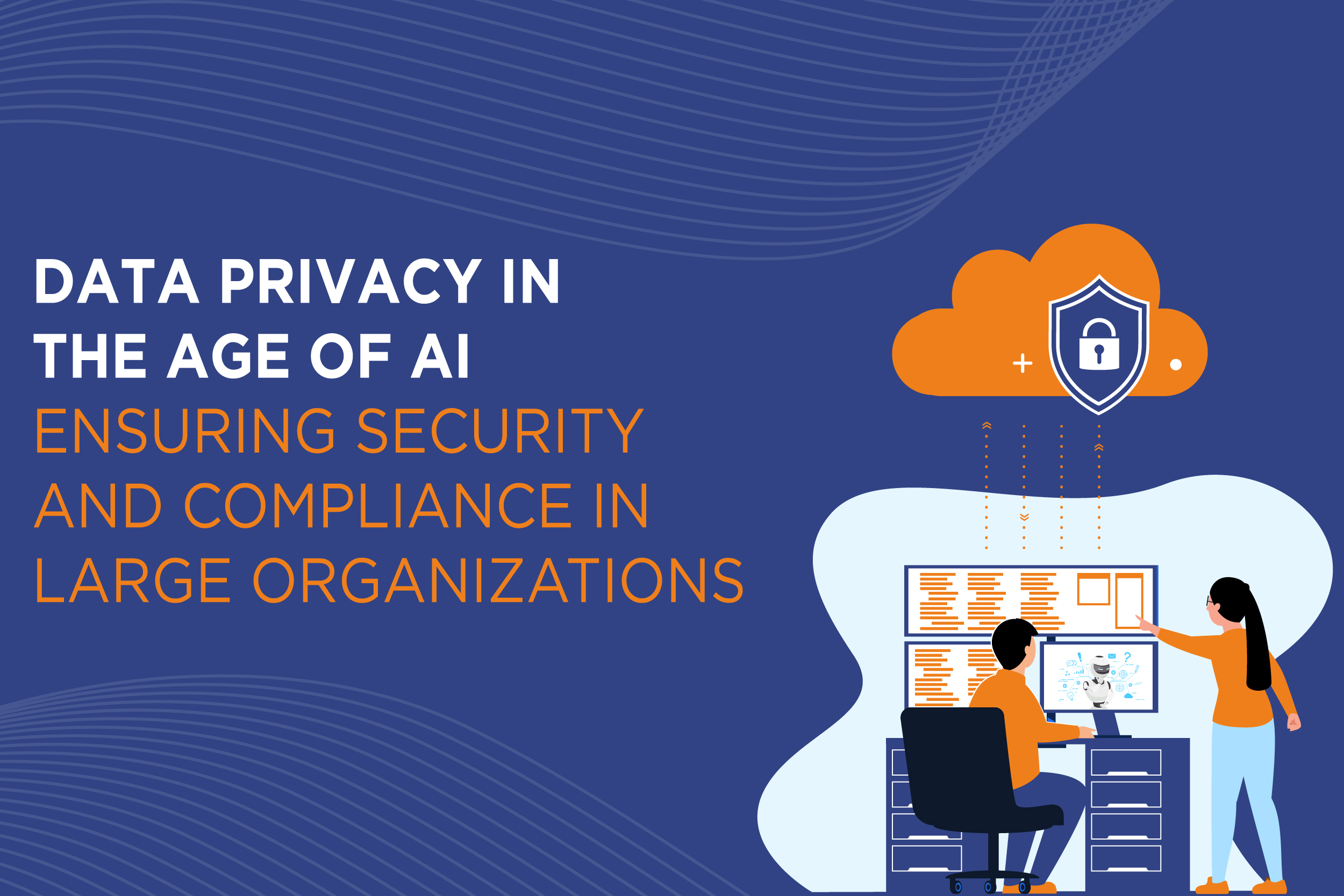
In the era of artificial intelligence (AI), ensuring data privacy is paramount for large organizations to maintain security and compliance with regulations. This challenge is accentuated by the vast amounts of data collected and processed by AI systems, heightening concerns about potential breaches and misuse.
Organizations must implement robust data privacy measures across the entire data lifecycle to address these concerns, from collection to disposal. This begins with implementing stringent access controls to limit who can interact with sensitive data and encryption to protect data both at rest and in transit. Additionally, this technique can remove personally identifiable information from datasets, reducing the risk of accidental exposure.
Furthermore, organizations must establish clear policies and procedures for data governance and compliance. This includes conducting regular audits to ensure adherence to data privacy regulations such as the General Data Protection Regulation (GDPR) and the California Consumer Privacy Act (CCPA). Moreover, employees should receive comprehensive training on data privacy best practices to foster a culture of compliance throughout the organization.
In parallel, organizations should invest in AI-specific security measures to safeguard AI models and algorithms. Additionally, deploying robust intrusion detection systems can help identify and mitigate potential threats to AI systems in real-time.
Collaboration with external stakeholders is also crucial for ensuring data privacy in the age of AI. This includes partnering with third-party vendors who adhere to stringent data privacy standards and regularly assessing compliance with these standards. Furthermore, engaging with regulatory bodies and industry groups can provide valuable insights into evolving data privacy requirements and best practices.
Despite these measures, the evolving nature of AI and data privacy regulations necessitates ongoing vigilance and adaptation. Organizations must continuously monitor Artificial intelligence and data privacy developments, updating their policies and technologies accordingly. By prioritizing data privacy and security, organizations can mitigate risks, build trust with stakeholders, and ensure long-term success in AI.
Read More
In today’s rapidly evolving business landscape, cloud transformation has become synonymous with innovation, agility, and competitive advantage. As organizations increasingly embrace cloud computing to drive digital transformation, building a cloud-centric culture has become crucial and imperative for success.
A cloud-centric culture is characterized by a mindset that embraces the transformative power of cloud technology and prioritizes. Its integration into every aspect of the organization’s operations, processes, and decision-making. It goes beyond merely adopting cloud solutions; it fosters a culture of collaboration, innovation, and continuous improvement.
One key strategy for building a cloud-centric culture is to promote awareness and understanding of the benefits of cloud transformation across the organization. This involves educating employees about cloud technology’s capabilities, its impact on business operations, and the opportunities it presents for driving innovation and growth.
Another critical aspect of cultivating a cloud-centric culture is to lead by example. Executive leadership must demonstrate a commitment to cloud transformation by championing its adoption. It invests in the necessary resources and infrastructure, and actively participates in cloud initiatives. Moreover, organizations must not only empower employees to become cloud advocates but also, consequently, champions within their respective teams and departments. This involves providing training and development opportunities to build cloud expertise and fostering a culture of experimentation and risk-taking.
Effective communication is also essential for nurturing a cloud-centric culture. Organizations should regularly communicate their cloud strategy, goals, and progress to employees, ensuring transparency and alignment. Organizations can cultivate a sense of ownership and commitment to the cloud transformation journey by keeping employees informed and engaged.
Furthermore, fostering collaboration and cross-functional teamwork is vital for building a cloud-centric culture. Cloud transformation often requires breaking down silos and facilitating cooperation between different departments and teams. Organizations can harness collective intelligence and creativity by encouraging collaboration and knowledge sharing.
In conclusion, building a cloud-centric culture is not only about adopting new technology but also about, therefore, transforming how people think, work, and collaborate by actively promoting awareness. It is leading by example, empowering employees, facilitating communication, and fostering collaboration, organizations
Read More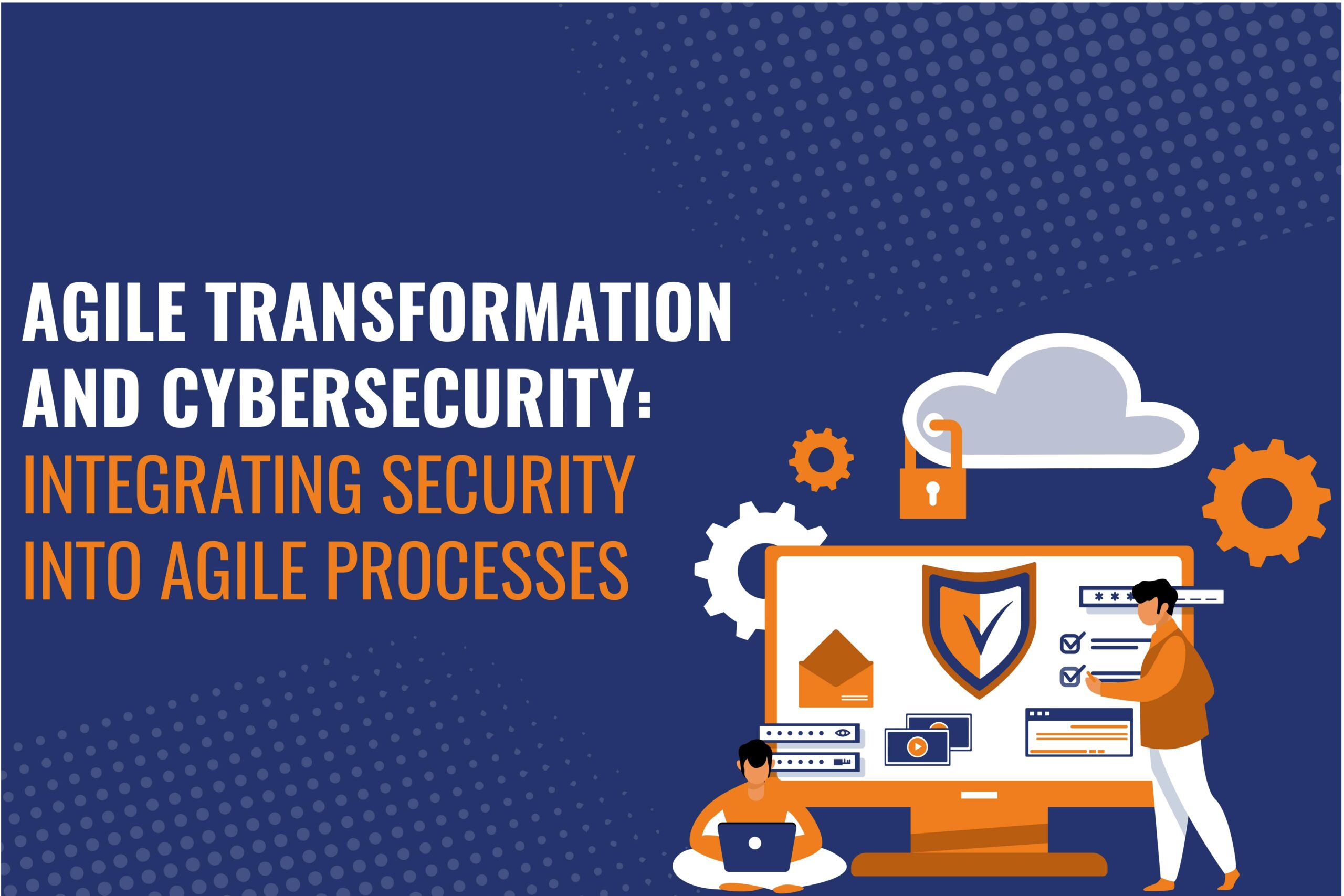
In today’s fast-paced digital landscape, agile transformation is necessary for businesses striving to stay competitive and responsive to evolving market demands. Agile methodologies enable organizations to adapt quickly to changing requirements, deliver products faster, and foster innovation. However, as businesses embrace agile practices, they must prioritize cybersecurity to safeguard their assets and maintain operational resilience.
For IT solution consultants, integrating security into agile processes is paramount. This involves seamlessly embedding security considerations into every stage of the software development lifecycle, from planning and design to implementation and deployment. By incorporating security practices into agile methodologies, organizations can mitigate risks and address vulnerabilities proactively rather than as an afterthought.
One key strategy for integrating security into agile processes is by leveraging automation. By automating security testing in CI/CD pipelines, teams can quickly detect and fix vulnerabilities throughout the development lifecycle. This accelerates delivery cycles and consistently applies security measures, reducing the likelihood of security breaches and downtime.
Furthermore, IT solution consultants are crucial in promoting a culture of security awareness and collaboration within agile teams. This collaborative approach fosters a shared understanding of security risks and responsibilities among team members, empowering them to take ownership of security outcomes.
An IT solution consultant offers expertise in implementing security best practices, including secure coding, threat modeling, and vulnerability management. By equipping agile teams with the knowledge and tools to prioritize security, consultants enable organizations to build resilient and trustworthy software products.
Ultimately, agile transformation and cybersecurity are intertwined aspects of modern business operations. As businesses embrace digital transformation, IT consultants will crucially integrate security into agile methods, ensuring successful and secure IT initiatives.
Read More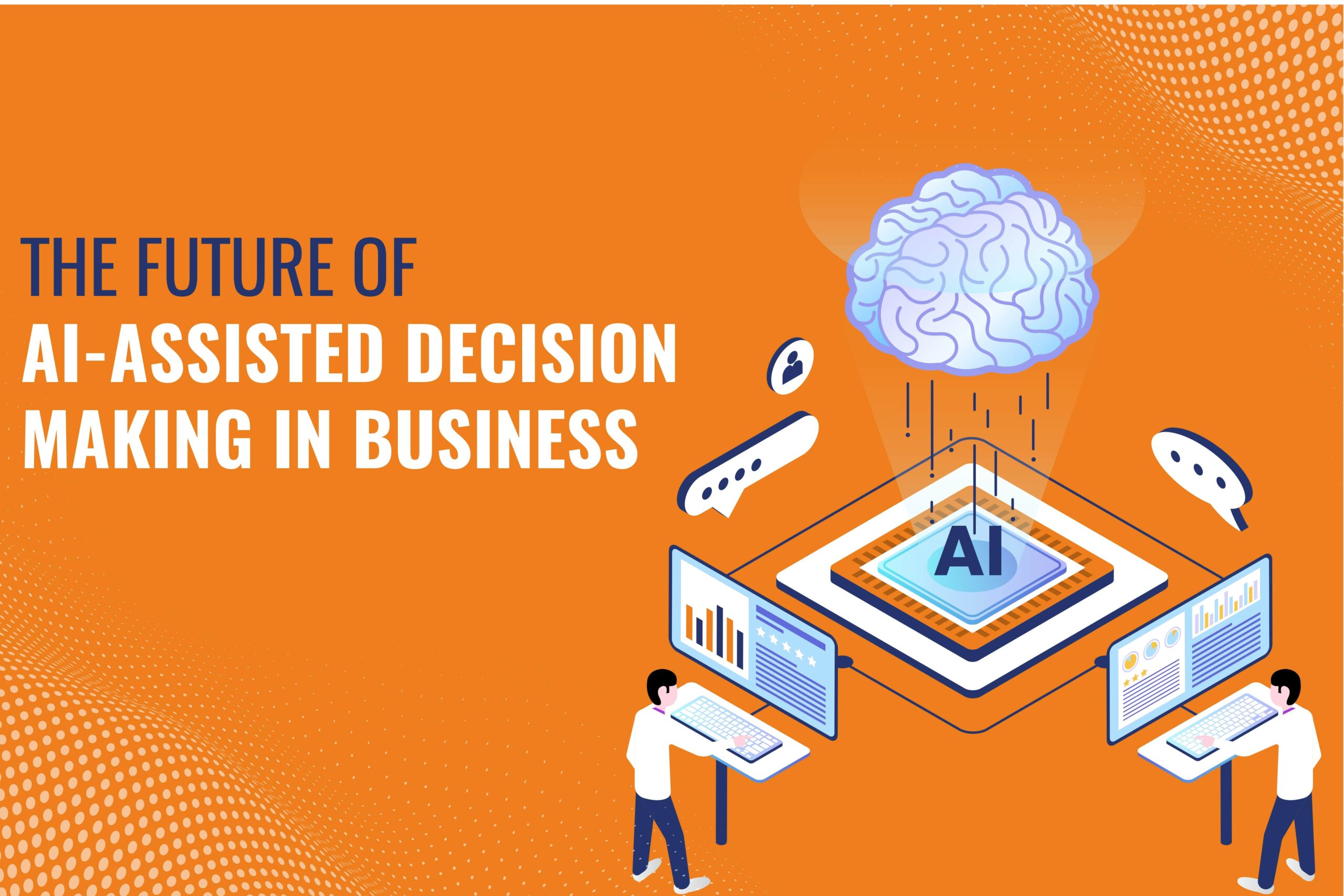
In the rapidly evolving landscape of modern business, integrating artificial intelligence (AI) is increasingly becoming a cornerstone of decision-making processes. This transformation promises to redefine how businesses operate, strategize, and compete in the global marketplace. As we peer into the future of AI-assisted decision-making, several key trends emerge, shaping how organizations harness AI’s power to drive success.
AI is set to transform decision-making by enhancing human intelligence with its unmatched capacity to swiftly process extensive data. AI systems use advanced algorithms and machine learning to analyze complex data, uncover patterns, and reveal hidden insights.
Furthermore, AI-powered decision-making holds the potential to optimize resource allocation and mitigate risks in an increasingly volatile and uncertain business environment. By leveraging predictive analytics and scenario modeling, AI systems can anticipate market trends, identify potential threats, and recommend proactive strategies to mitigate risks and capitalize on opportunities.
Moreover, AI-driven decision-making democratizes access to insights and expertise, empowering businesses of all sizes to compete on a level playing field. With the proliferation of AI tools and platforms, even small and medium-sized enterprises. So, it can harness the power of AI to streamline operations, optimize processes, and drive innovation.
The future of AI in business will see continuous advancements, integrating AI into every aspect of organizational operations. AI is set to impact all business areas, from customer service to financial forecasting, boosting efficiency, agility, and innovation.
So, the future of AI-assisted decision-making in business is bright and promising. It offers unprecedented opportunities for organizations to drive growth, innovation, and success. By harnessing the power of Artificial Intelligence to augment human intelligence, optimize resource allocation, and democratize access to insights. In addition, it embraces ongoing advancements in AI technology, and businesses can position themselves for long-term success.
Read More
Leave a Reply